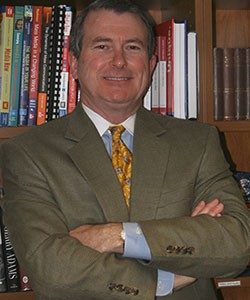by Tony Pederson
Student and alumni reaction has been strong and emotional regarding the closing of Student Media Company Inc. at SMU. Formed almost 90 years ago, the independent company publishes the SMU Campus Weekly (formerly The Daily Campus) student newspaper and the Rotunda yearbook. Declining ad revenue is forcing the change. The concerns have centered on loss of independence and the possibility that free speech by students will be lost and that censorship by the SMU administration could be a factor in future publications.
The print newspaper will cease to exist with its last edition next month. The online version of the paper, SMUDailyCampus.com, will continue under the supervision of the Division of Journalism. The future of the Rotunda is uncertain.
Related: SMU’s Student Media Company to dissolve in May
I am pleased by the reaction from students and alumni. It means that in our journalism classes, we have taught them the value of the First Amendment and the dangers of limiting press freedom. The historical lesson from every part of the world is that democracy suffers when freedom of expression is restricted.
I hope, too, that our students have learned the history of SMU and some of the tradition of its Wesleyan founding. There is a seminal story frequently told by late SMU professor Emeritus Marshall Terry concerning an incident in the 1950s when Cold War tensions were running high and the fear of communism was palpable. Willis Tate was president of SMU, and unbeknownst to him, a student group had invited John Gates, an avowed Communist and former editor of the Daily Worker, to speak. Tate found out about the invitation only by reading the SMU Daily Campus, and he was not pleased.
In his history of SMU titled “From High on the Hilltop,” Terry put it this way: “These were Joe McCarthy times and, in Dallas, John Birch times of ultraconservatism when SMU already seemed scary pinko to many.” The “pinko” reference had been directed personally at Tate by a columnist in The Dallas Morning News, and Tate had already been heavily criticized by the Ku Klux Klan for permitting the integration of SMU. Once word circulated about Gates, civic groups were quick to criticize the event. Even the SMU Mothers Club expressed opposition to the Gates appearance.
Tate withstood the firestorm. Gates spoke on campus. In recalling the incident years later, Tate said he believed it essential for a university to serve as a marketplace of ideas. Tate is remembered for his firm commitment to academic freedom and free speech. Today the Willis M. Tate Distinguished Lecture Series is one of SMU’s signature events.
Just in the last year, questions have been raised about speakers — some conservative — on the SMU campus. Yet speeches have been made, and discourse has been civil. SMUDailyCampus.com was first to report about the controversy to move an annual 9/11 display from in front of Dallas Hall. There was miscommunication involved, but it was a bad move and everyone knew it. President R. Gerald Turner apologized in a letter to the SMU community.
Economic realities have, sadly, affected virtually every news media organization in the U.S. Student media operations at many universities have been forced to change. Every member of our journalism faculty has at one point worked in professional news media. We are disheartened by the changes but committed to preserving freedom of the press in every facet of the classroom and newsroom.
Related: The kids aren’t all right: Who really killed the student free press of SMU
I personally have spent the last 40 years working for press freedom issues in Latin America. While president of the Inter American Press Association in 2000, I led a press freedom forum in Bogotá, Colombia. At the time, the civil war and narcotrafficking were taking the lives of dozens of journalists every year. I’ll never forget a question posed by a young newspaper reporter at the forum.
“What kind of a choice is it,” he asked, “when you have to choose between a story you know is important and your life?”
The choices we are making on press freedom in the U.S. and on every college campus are fortunately not life-threatening. But they are no less profound.
 Tony Pederson is a professor and The Belo Foundation Endowed Distinguished Chair in Journalism in the Meadows School of the Arts.
Tony Pederson is a professor and The Belo Foundation Endowed Distinguished Chair in Journalism in the Meadows School of the Arts.








